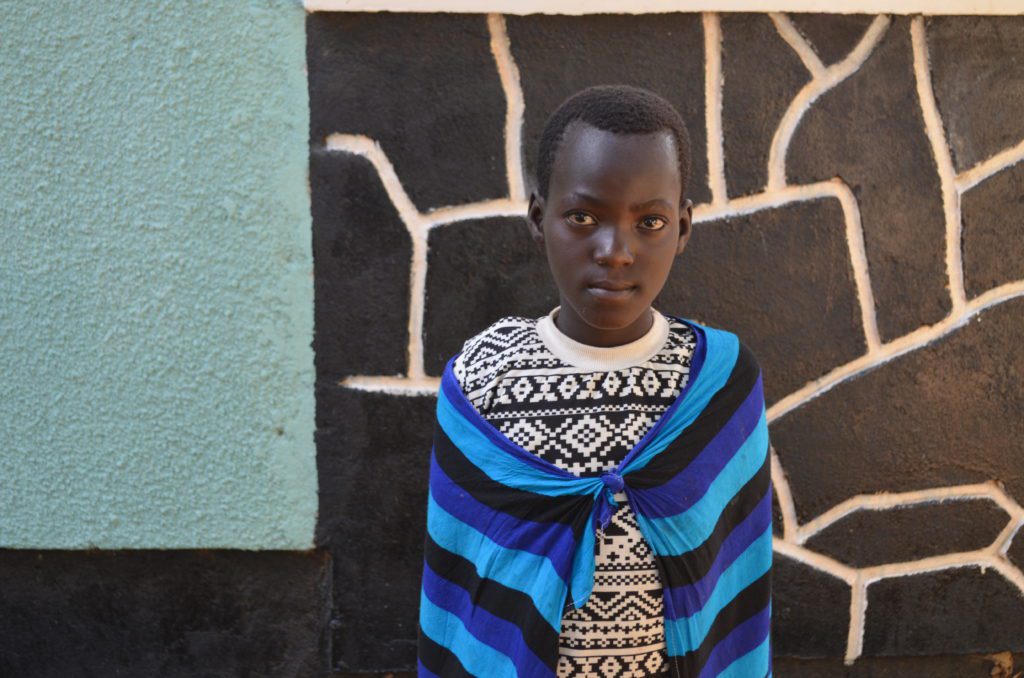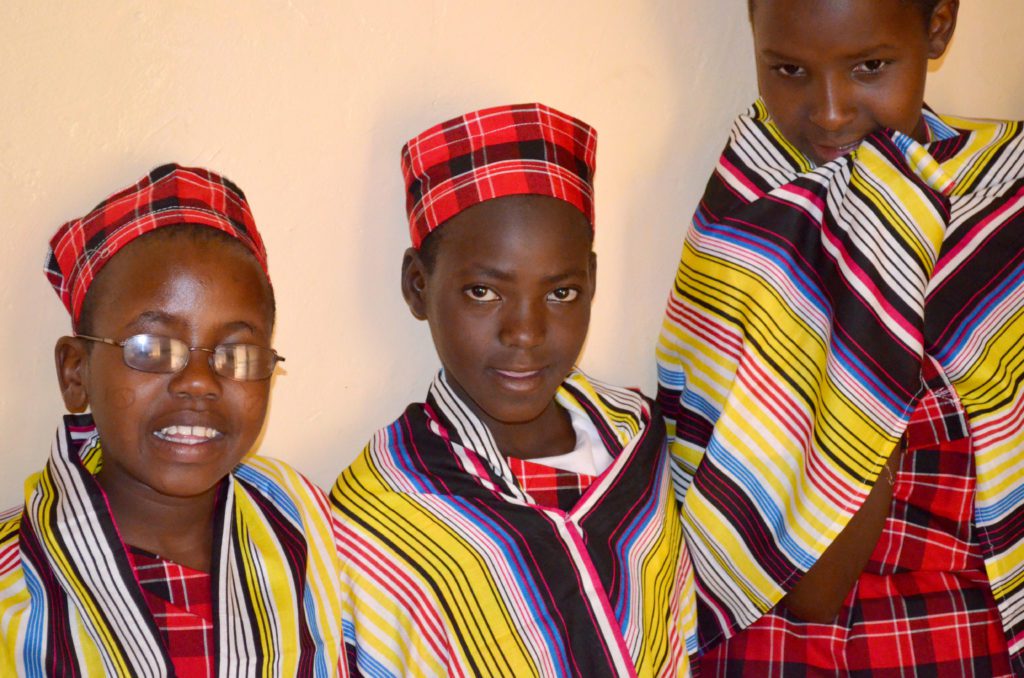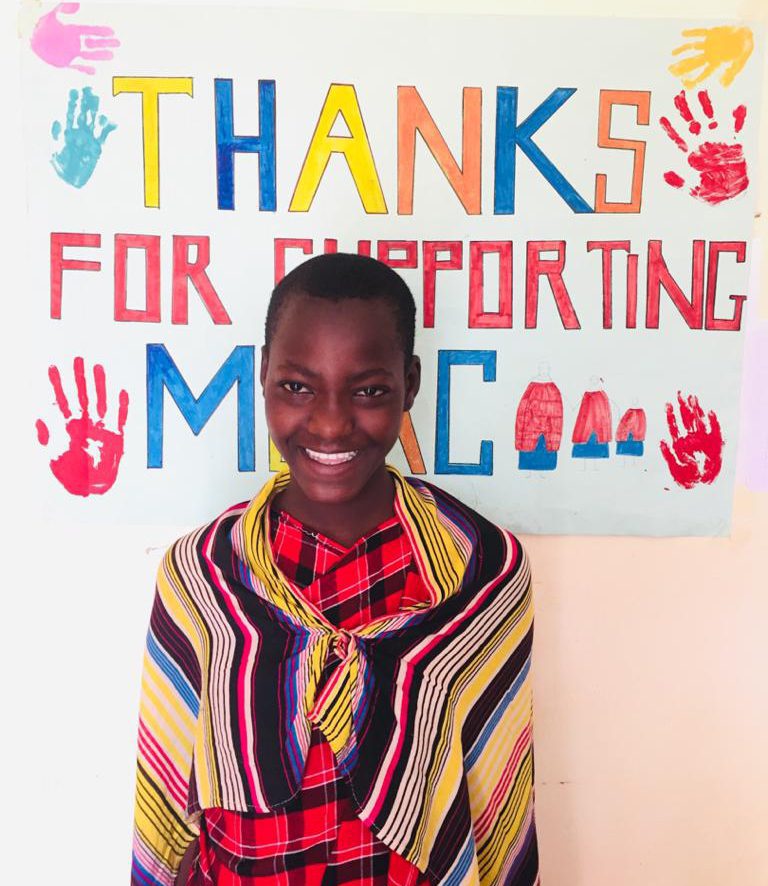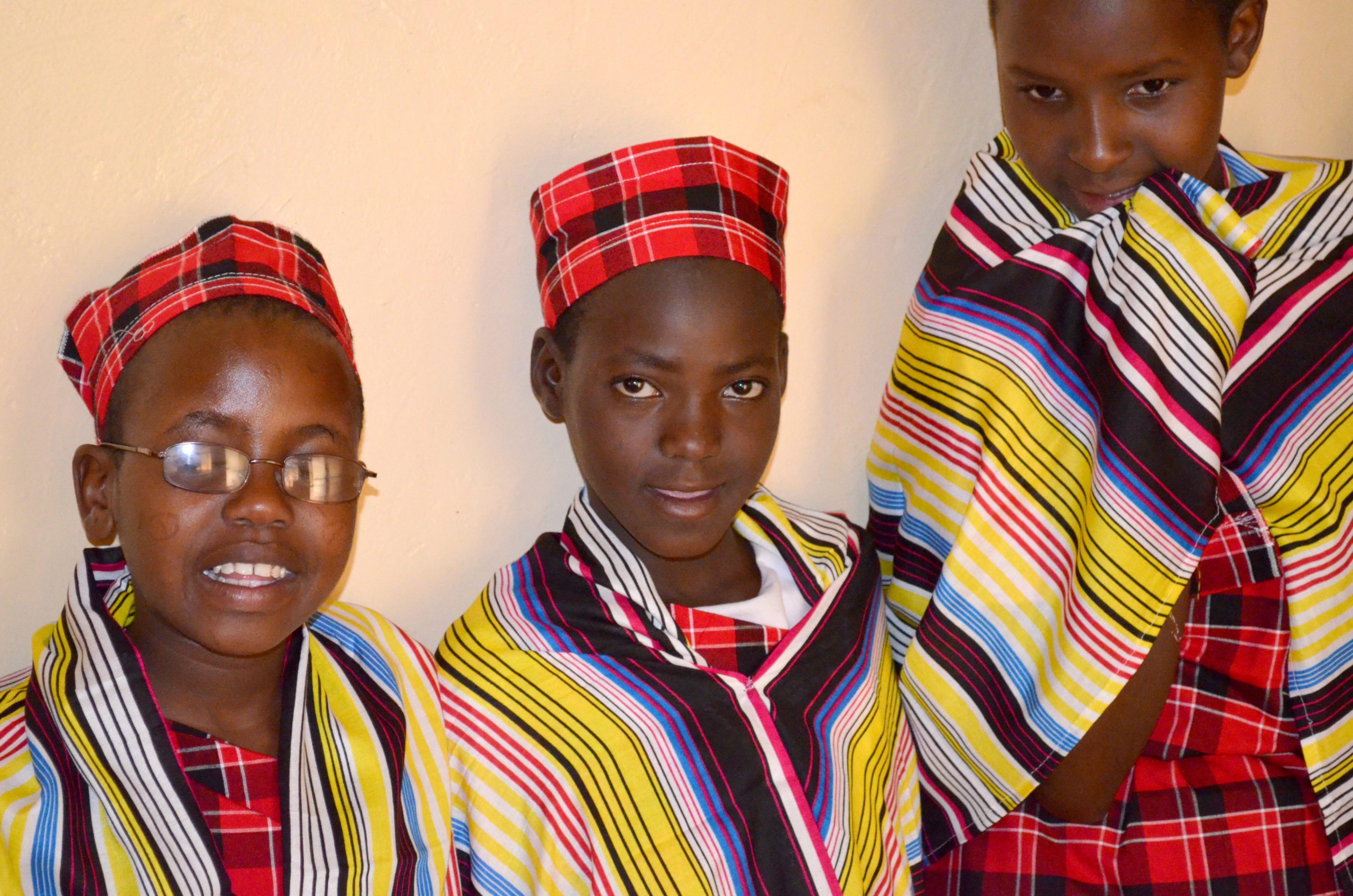In 2014, before MGRC was founded, the village chief of where I was living asked me to help a girl with skeletal fluorosis, a condition that caused deformation of her legs. I agreed and took the 9-year-old to Plaster House, a facility in Arusha that provides corrective surgeries and rehabilitation for children with disabilities. She had never seen a white man, had never ridden in a car and only spoke Maa, the Maasai tribal language. She was petrified. I didn’t know how to speak Maa so I asked a local girl who spoke it to join us. I hoped that this would help her feel more comfortable on the drive to Plaster House.
Namelock comes from the bush where survival is not just a skill but a way of life in a natural environment. So it’s hard to imagine how overwhelming a city like Arusha must have been for her. She did quickly settled in at Plaster House and when I visited her, she was all smiles. I asked her why she was smiling and she replied, “I love it here. I get food every day!”
After her recovery, she returned home to her family. A year later, her mother – who was alone and struggled to feed and care for her 7 children – asked me to take Namelock in at MGRC. At 10 years old, she came to live at MGRC and was enrolled in Class 1 (first grade) at the local school. She was very bashful and shy, but within a month and a half she had picked up both Swahili and English. When MGRC moved to the Karatu area this past January, she quickly picked up yet another tribal language!



Namelock is smart and clearly gifted at language. She has the ability to be anything she wants to be, however being so behind in school can be an obstacle for any girl in Tanzania. Although, she has quickly moved up to Class 5, given her age she would be in Secondary school.
In Tanzania, Secondary school enrollment rate is low – 31 percent. Often, families must pick one child to fully educate. Being a patriarchal society, girls are less likely to be choosen. If Namelock chooses to continue to raise her education level beyond Secondary school, she will have the possibility of increasing her future household income by up to 30 percent.
Before coming to MGRC, marriage (at times, forced) and a childbearing life was all she had known. Our work is to show her and the other rescued girls all of the many options that are available to them. This can be especially challenging for the older girls who came from a life where few ever saw the world outside of their boma. I mean, how do you tell a girl she can be a teacher when she’s just starting school herself? Or how she could be a storekeeper but has never seen a store.

In addition to providing formal education opportunities, MGRC offers counseling and mentoring. We teach life skills such as sewing, sustainable farming, caring for livestock, and money management. We show them American movies and bring in volunteers to expand their world view and help with their English skills. We connect them to the local community through church and community service projects. Our hope is that the girls learn that self-care and serving others can go hand-in-hand.
Namelock’s story of growth, perseverance, and moving beyond survival is still being written. Through your support of MGRC, she is thriving and learning about what the world has to offer. And we will continue to love and support her as she begins to dream bigger and bigger dreams. We can’t wait to see how her story unfolds!

Comment(1)-
-
Celebrating the success of our first two graduates
-
Help us build bathrooms and classrooms
-
God’s Invisible Hand at Work
-
2023 Year in Review, Part Two: Education and Development
-
2023 Year in Review Part One: Our New Home


Dan M says
October 24, 2023 at 12:05 pmWhat a beautiful story, and I would say “Happy Ending” but Namelock will soon be able to create her own future and many more happy endings. What a terrific organization!
Recent Posts
Our Promise
When you give, 100% of every dollar goes directly to the care of the girls.